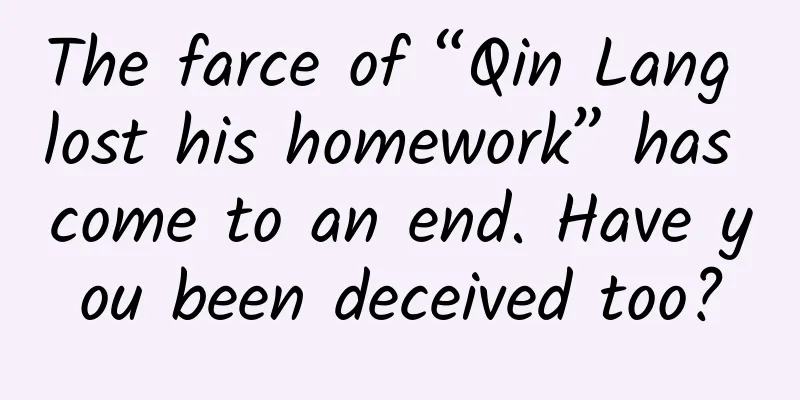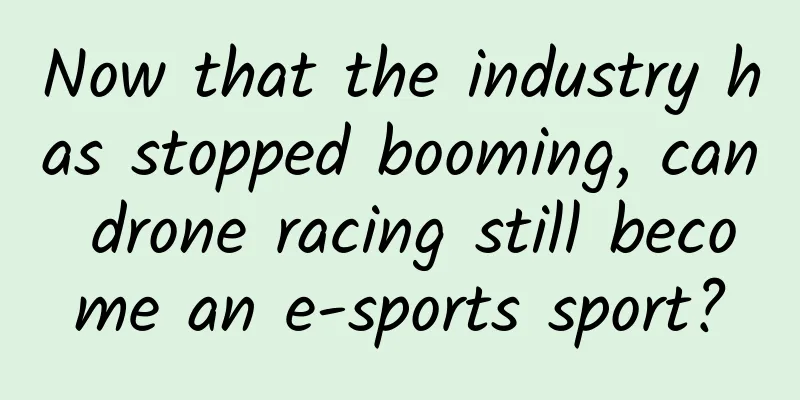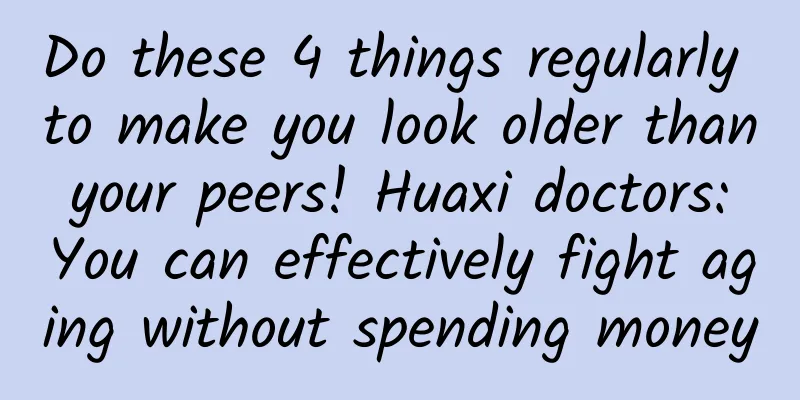The farce of “Qin Lang lost his homework” has come to an end. Have you been deceived too?

|
Editor’s Note: "Qin Lang, Grade 1, Class 8, I found your winter vacation homework in Paris." During the Spring Festival holiday this year, the incident of "Qin Lang lost his winter vacation homework in Paris" occupied many hot search lists, and many self-media followed up and hyped it up. Recently, the police reported that the video of "Qin Lang, a primary school student, was found in Paris" was fabricated, and the public security organs have imposed administrative penalties on the relevant personnel in accordance with the law. This incident once again aroused people's attention to the authenticity and identification ability of information. In the era of information explosion, we are often faced with the impact of massive amounts of information, and it is not easy to distinguish between true and false information. So why is false information so prevalent? What can we do to effectively prevent scams and rumors? I believe many people have had this experience: there are always people in WeChat groups forwarding online rumors, claiming that 6,000 worms were found in oranges, that fish can infect people with the SB250 virus, and that monks were found abducting children in a certain place. Some people may laugh at this, but more people choose to believe it. So why are humans so easily deceived? Part 1 People all over the world are victims of lies and rumors The best example of how gullible Americans are is the banana crisis of 2000, when dozens of emails were sent out claiming that bananas imported from the United States were infected with flesh-eating bacteria that could cause necrotizing fasciitis, a rare disease in which black and purple sores appear on the affected area, then break down and eventually peel away from the muscle and bone. The emails claimed that the U.S. Food and Drug Administration (FDA) was trying to cover up the outbreak to prevent people from panicking. Faced with these threats, readers were encouraged to forward the above information to family and friends. Of course, these threats were pure nonsense. But by January 28, the Centers for Disease Control and Prevention (CDC) was forced to come out and issue a statement to stop the spread of such rumors. Did the CDC's approach work? Damn it! Instead of quelling the rumors, it fueled them. Within a few weeks, the CDC was flooded with calls from worried citizens, so many that they had to set up a banana hotline. The facts were so distorted that people began to blame the CDC for spreading the rumors. Even today, new variations of these rumors occasionally stir up those old fears. Part 2 Human thinking flaws: Falling into the mentality of "better believe it than not" and being unable to extricate oneself The banana crisis in the United States may seem like a farce, but certain flaws in our rational thinking can have serious and even dangerous consequences, and in this respect, Chinese and Americans, all human beings are the same. On the other hand, the same flaws in our logical thinking can convey more dangerous ideas, such as believing that HIV is harmless and that vitamin supplements can cure AIDS. Why, in the face of overwhelming evidence, do these falsehoods persist? And why do attempts to deny them only fuel the flames? It has nothing to do with intelligence; even Nobel Prize winners can get caught up in some bizarre, unfounded theories. But a series of recent psychological studies may provide an answer, demonstrating how easy it is to construct a rumor that bypasses the brain's deception filters. Part 3 Humans are cognitive misers: Defects caused by the community's high efficiency requirements The first explanation is that we are all "cognitive misers" and in order to save time and energy, our brains usually use intuition rather than analysis. As a simple example, quickly answer the following questions: In the Bible, how many of each animal did Moses take on the ark? When Tang Monk returned to the Tang Dynasty in the East, what did he bring back? Was it pumpkin planting or sugar manufacturing technology? Which country was Mrs. Thatcher the president of? Even though participants were explicitly asked to note inaccuracies in the sentences, 10 to 15 percent of the subjects still focused on the fact that the Ark was not built by Moses but by Noah, who brought the animals on board; that Monk Tang actually brought back no agricultural technology except scriptures; and that many people also failed to notice that Thatcher was actually the Prime Minister of the United Kingdom, not the President. This demonstrates how easily we overlook details and focus only on the general idea of a sentence. We often only judge whether information feels right or wrong before we accept or reject it. Even when we know we should focus on facts and evidence, we often "follow our feelings." When it comes to whether we believe something or not, and whether the source is credible, we tend to trust people we know, which means that the more we see a close-up of the person speaking, the more likely we are to believe what they say . In fact, these people are not experts, but this factor is not considered at all when judging the truth, Newman said. What's more, we will deliberately ignore the number of people who support the view. When people with similar views appear repeatedly on news programs and repeat their views, it creates an illusion that the view is more supported and therefore may be true, which in turn makes us more likely to regard it as the truth. Part 4 Cognitive Fluency In addition, we need to consider " cognitive fluency ." Essentially, whether or not a rumor tells a good coherent story is most important in terms of whether it can make us feel like we are seeing something. If something feels smooth and easy to understand, then we will naturally assume that it is true. The more the rumor fits our expectations, the easier it is for us to believe it. "The rumor has to be sticky and have something in common with what we already know," said Stephen Lewandowski, a psychologist at the University of Bristol in the UK. "In this way, we ourselves will connect it with what we know and reinforce your belief." With these findings, you may begin to understand why Chinese people began to believe rumors in various disguises in their WeChat Moments, and why the fear of flesh-eating bananas spread so quickly among Americans. First, a stream of information comes from people you tend to believe (friends), which can enhance the credibility of the information and make it more popular. Second, the concept itself is very vivid and easy to describe, which means it has a high degree of cognitive fluency. Third, if you happen to distrust the government or institutions, the idea of covering up the truth will resonate with your worldview. “Cognitive miserliness” may also help explain why these attempts to correct rumors can only serve to fuel the flames. Experiments have shown that providing contrary evidence only reinforces someone’s existing beliefs. Part.5 Debunking rumors leaves a psychological black hole Some studies have shown that human deep memory has flaws. If memory is like recording a video, and we can use the maximum power of memory, it would be very easy to correct the facts. However, many years of research have shown that our memory is not perfect and there are always various flaws, causing us to lose a lot of information. Because of these weaknesses, we can easily be drawn to the fascinating details of a story and overlook the trivial original truth that proves the story is a fabrication. Worse still, by repeating the original truth, correcting the truth can make the rumor more familiar. As we have seen, familiarity can also increase credibility. If the truth cannot be immediately proven, attempting to correct the truth can make people more likely to believe the fabricated story. Debunking a rumor can also leave an uncomfortable mark on the mind. Psychologists say that our beliefs are embedded in our mental models, and each idea is internally connected to other ideas. It's a bit like a tightly bound book: when you tear out a page, the other pages are damaged, which can cause black holes in your mind, and people don't like that feeling. To avoid discomfort, we often prefer to believe a rumor rather than have our entire belief system begin to collapse. Fortunately, there are more effective ways to help people stick with the truth. First, you should avoid repeating the original story and try to come up with complete alternatives to fill the holes in the mental model. By repeating the information, you help solidify it in people's minds. Soon, people will feel that it is false information, and through the process of increasing familiarity, the tide of public opinion will begin to turn. At the very least, being aware of these flaws in your thinking can help you stay alert when you're being deceived. Finally, when you receive calls from various institutions claiming to be law enforcement agencies, banks, etc., when you see or hear something, you need to keep asking yourself: Have you thought about it carefully? Are you a "cognitive miser"? Do you tend to believe biased feelings rather than facts? Thinking about all these can help you effectively prevent scams and rumors. Produced by: Science Popularization China Author: Scientific Citizen Producer: China Science Expo This article only represents the author's views and does not represent the position of China Science Expo This article was first published in China Science Expo (kepubolan) |
Recommend
Can you make a ball float in the air by just shouting? It's not magic, it's the power of sound
No one touches the ball, but it stays in the air....
Android turns 10: What's left of the original OS?
[[244605]] The first commercial version of Androi...
The world's first Snapdragon 835 Win10 PC is launched: 8+128GB powerful configuration
Qualcomm's new flagship mobile processor Snapd...
The promotion process of "giving away books" to attract new customers
Nowadays, many fission methods are carried out th...
Debugging tips you may not know
1. Remote debugging Debugging is a necessary skil...
Here's why Siri is hard to use, and it's about to be solved
When many people talk about Siri, they often comp...
Why is the sky dark at night? The Big Bang theory explains →
Author: Duan Yuechu and Huang Xianghong On a clea...
AARRR Model: Mastering Gamification User Growth Strategy (Part 1)
We need a set of operational plans based on the A...
HPV vaccine causes infertility, taking selenium-rich products can prevent cancer... Are these cancer prevention claims reliable?
The World Health Organization once proposed that ...
Operational tips: In the early stage of promotion, should we use WeChat or App?
The author of this article is Qianniu Xujin, form...
XCode6.0 iOS certificate-free real machine testing method (valid for both MAC and Hackintosh)
[[121733]] Currently, iOS programs developed on X...
International Bird Day丨Come and learn about “birds”?
Since ancient times Beasts galloping in the fores...
Niu Men's Fitness Series Courses from Beginner to Mastery Collection Baidu Cloud Download
A collection of Niu Men's Fitness Courses fro...
Cost and bidding strategy, what should I do if Baidu SEM bidding cost is high and traffic is low?
Every year, many college graduates come out to lo...
Cross-desktop componentization practice
Background Windows Qianniu has a lot of functions...









